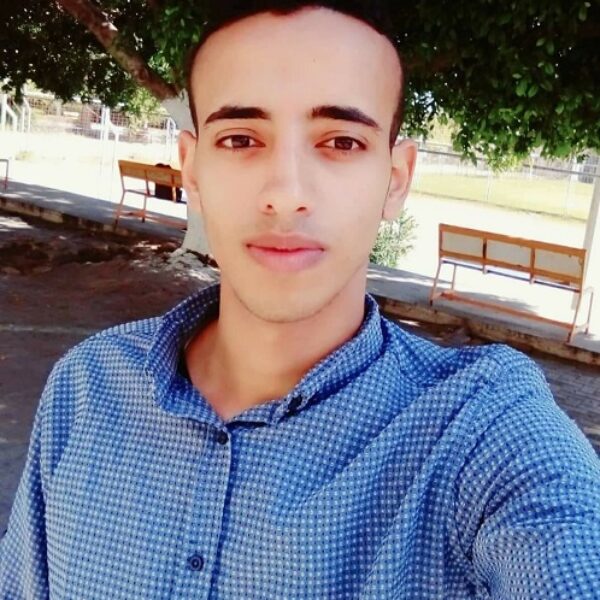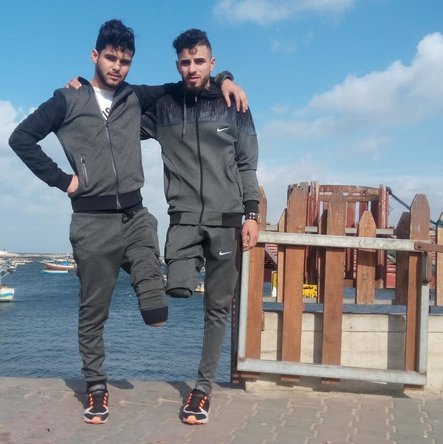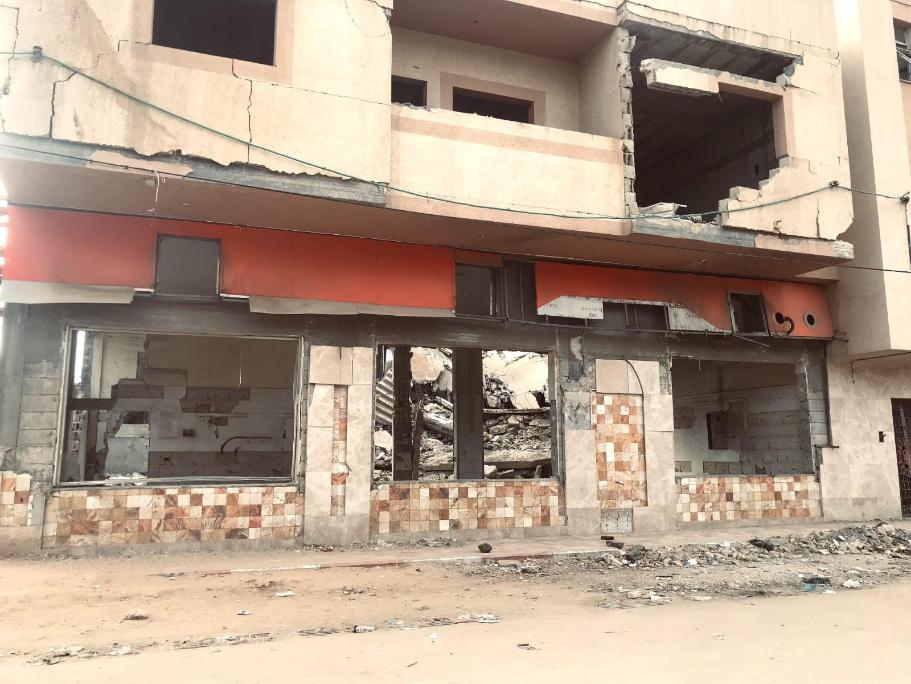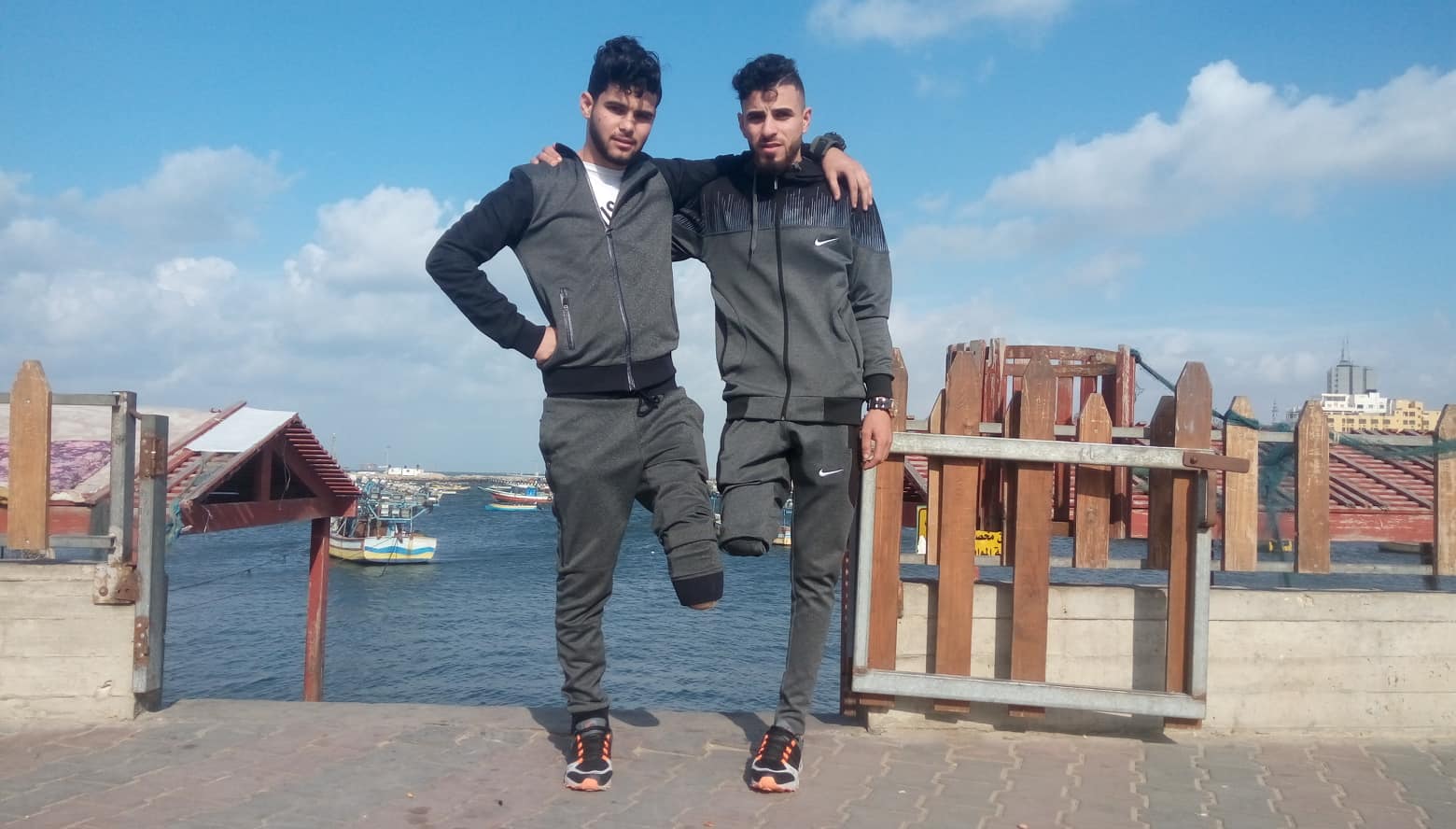
After the end of our university lectures on Thursday, December 6, my friend Malik and I decided to go to the Gaza port. We walked leisurely, taking time to take a few pictures and talk to the various boys and men hawking their wares. When we got to the harbor, I felt a desire for a paper cone of boiled corn, and Malik waited while I bought one. As I finished, my attention was caught by two young men with only one foot each; their legs had been amputated. What particularly made me stop and look is that they wore almost identical clothes and shoes.
I told Malik, “I want to know their story!” I am a curious, social person, which is in part why I am studying both media and psychology in university. We approached the two young men and I introduced myself, then helped them descend the stairs next to the fishing boats, so they could better enjoy the view. Here is what they told me:
Mahmoud Hamami, a 19-year-old from Gaza City, works in the ancient Zawya market as an accountant. The day that changed his life was August 31, 2018, when he and his friend Ahmed al-Borno decided to attend the Great Return March protests along the border. They were, he reported, simply watching the protesters near Joker Street, about 300 meters (900 feet) from the border, when Mahmoud was shot in the right foot by an Israeli sniper. The force knocked him down, and when he tried to stand up, he was shot in his left foot. Now in a coma, he was taken by ambulance to al-Shifa Hospital in Gaza City.
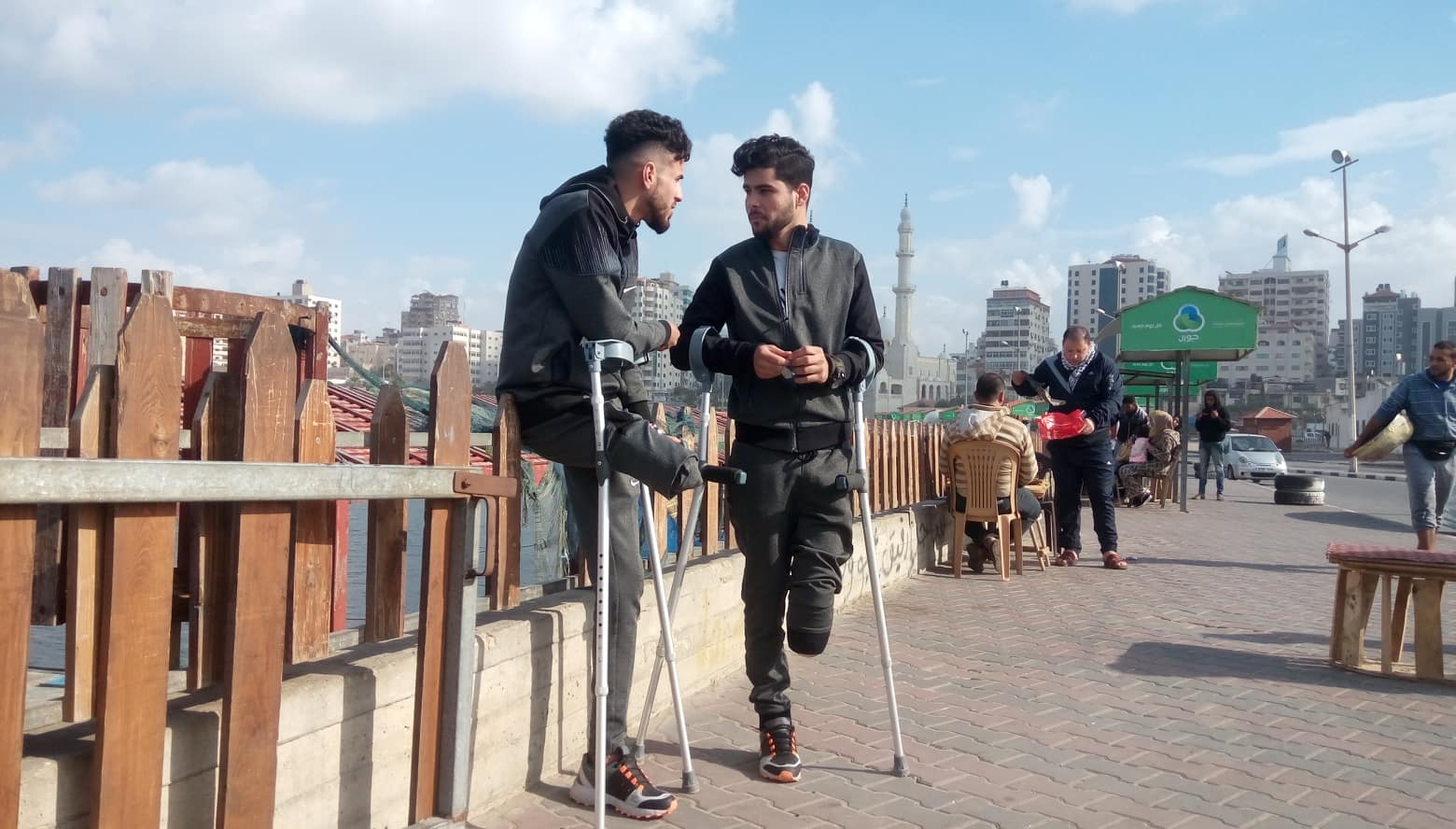
“I was kept in the refrigerator for the dead!” he reported. “I had been declared a martyr for two hours! Fortunately, some doctors noticed I was still alive."
Mahmoud also was fortunate to be given permission to travel to Makassed Hospital in Jerusalem for treatment. During his 25-day stay in the hospital, he woke up from his coma to find he was alone. No family member had been allowed to travel with him. The day after, his left leg was amputated.
When Mahmoud finally returned to Gaza, his family was relieved and happy, but shocked when they saw his leg was gone. It took a while for them to accept what had happened, and Mahmoud himself suffered post-traumatic stress disorder.
"But I’ve slowly adapted to my situation with the emotional support of my family and now, my friend Ahmed. I’m beginning to live my life more normally,” he assured me.
Ahmed, 21, experienced a similar life-changing moment about two months after Mahmoud, who encouraged him to continue to protest. Ahmed was shot in his right foot by an Israeli sniper during the border protests on Friday, October 10.
"I went to the return march to participate peacefully, without even throwing any stones,” he recalled. “I never imagined I would be shot. I was watched the soldiers aim their weapons at the young people close to the border, and then they turned them on me!”
Ahmed stayed for 29 days at al-Shifa Hospital in Gaza City. His family tried and failed to get him out of Gaza for proper treatment, since so the Strip suffers from a lack of supplies. As a result, Ahmed developed a severe infection in his right foot and, like Mahmoud, his leg was amputated—first the lower leg and then above the knee when the infection spread.
"I had dozens of surgeries so I could survive,” he says. “I’ve lost part of my body and I went into shock. It was like living a nightmare. But now I’ve decided to be stronger than before." Mahmoud was next to him all of the time and he credits his friend and his family for his recovery.
The two young men now wear the same clothes and shoes; in fact, when they think of buying shoes, they buy one pair and split the cost. Mahmoud wears the left shoe and Ahmad wears the right. They both dream of leaving Gaza and traveling around the world.
"I dream of traveling to Turkey, living a safe life without war, trauma or violence," says Ahmed. And they want artificial limbs to replace their amputated feet.

